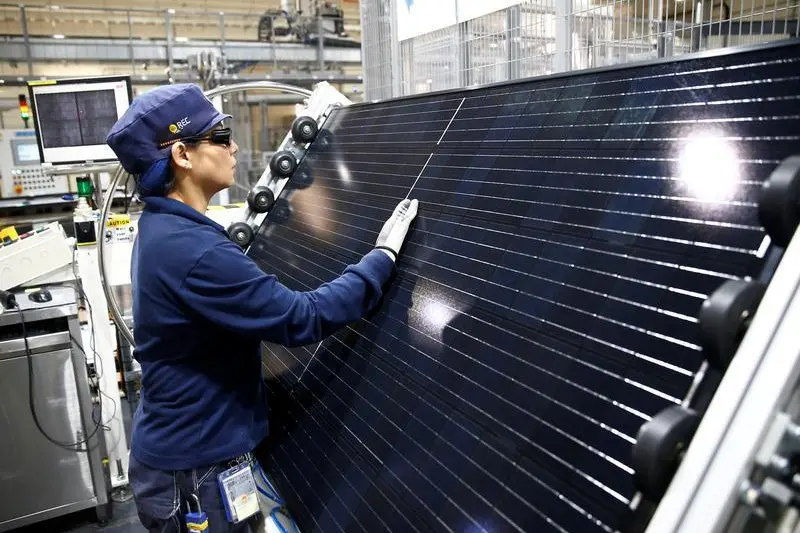PHOTO
Ghana is working on building capacity across the solar value chain and intends to make the country a regional manufacturing hub for solar panels and components, a senior government official said.
Seth A Mahu, Deputy Director of Renewable Energy at Ghana’s Ministry of Energy said the government aims to make Ghana a production hub for solar energy technologies leveraging on the fact that Ghana hosts the Africa Free Trade Intercontinental Zone and access to the ECOWAS (Economic Community of West African States) market.
“We are hoping to work with ISA (International Solar Alliance) to help us accelerate local production,” he said on 29 November while speaking at a webinar organised by Lighthouse, a World Bank and ISA initiative.
Mahu said Ghana is aiming to increase its electricity access rate to 90 percent by 2025 from 81 percent at present.
“We need solar energy to drive that strategy. We have created an attractive market for the private sector in the distributed generation and stand-alone solar home systems segment,” he said.
He pointed out that the country has approved net metering tariff setting guidelines to increase solar deployment for captive applications.
“The Public Utility Regulatory Commission which regulates the commercial aspects of electricity in Ghana approved the net metering tariff setting guidelines. Industries now can invest heavily in solar, utilise their own energy [self-consumption] and export the excess to their grid,” he said.
Speaking about the measures has taken to scale solar energy in the country, Mahu said: “In 2021, Ghana announced the Renewable Energy Act, which gave impetus to solar development. The National Renewable Energy Master Plan which followed outlined the development of solar and other renewable technologies during a 10-year period from 2020 to 2030.”
The energy ministry official said Ghana intends to develop about 600-700 megawatts (MW) of solar generation, starting with a 250MW solar park.
“As we speak 150MW of solar has been realised and another 100MW is under development,” he said.
“We took into consideration the perceived risk issues with land acquisition, access to transmission infrastructure and connections. It's been a great success because the price of solar energy has dropped significantly because of that,” he said.
Mahu also noted that the government has given enough incentives to private and public sector investors to guarantee a return on their investments and attract capital into the sector.
(Writing by Sowmya Sundar; Editing by Anoop Menon)





















